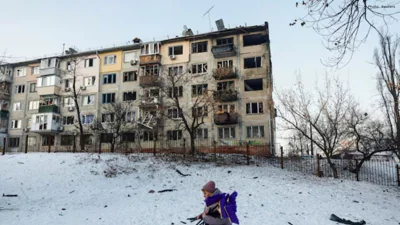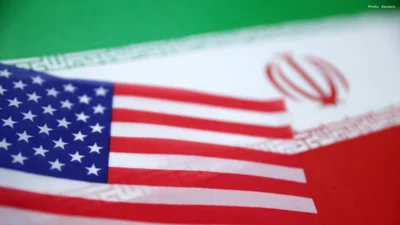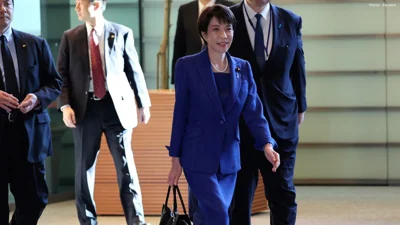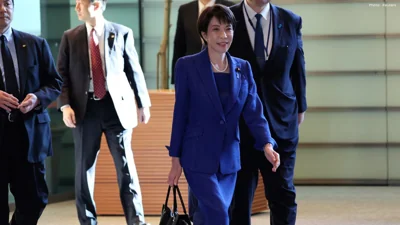
Post by : Anees Nasser
Regional peace talks have long served as a diplomatic tool to address conflicts and foster stability in volatile regions. However, their implications extend far beyond their immediate geographic focus. In the modern geopolitical landscape, these discussions shape global alliances, influence economic growth, and even dictate the security frameworks of international organizations. With nations becoming increasingly interconnected, the outcomes of these negotiations ripple across continents, influencing global politics in profound ways.
In an era where regional disputes can escalate into global crises, the role of localized peace initiatives cannot be overstated. Regional talks often set the foundation for broader international negotiations. For instance, agreements reached during intra-regional dialogues frequently serve as stepping stones for global treaties and conventions. When neighboring nations resolve disputes, it creates an environment conducive to global cooperation on shared concerns such as trade, climate change, and counterterrorism.
The practicality of regional discussions lies in their ability to address cultural, historical, and territorial nuances that larger global forums often overlook. Unlike global summits, which involve numerous stakeholders with divergent interests, regional talks allow for tailored solutions that respect local dynamics while aligning with international standards.
While the immediate goal of regional peace talks is to halt conflict and restore normalcy, their broader consequences are strikingly significant. Consider the case of peace initiatives in Southeast Asia. These efforts not only reduced tensions within the region but also reassured global investors, resulting in economic benefits that extended to partners worldwide. Similarly, peace pacts in the Middle East often shape global energy markets, as stability in this region directly impacts oil and gas supply chains.
Moreover, successful regional negotiations enhance the credibility of multilateralism. When regional actors demonstrate the capacity to resolve disputes, it strengthens the legitimacy of international organizations such as the United Nations. Conversely, the failure of such talks can erode confidence in global diplomacy, leading to unilateral actions that disrupt international order.
Global superpowers closely monitor regional peace talks, not out of mere goodwill, but because the outcomes often affect their strategic interests. For example, peace efforts in Africa have drawn significant involvement from Western nations and China, each seeking to protect trade routes, secure access to natural resources, and expand spheres of influence. This interplay transforms regional dialogues into stages for global power competition.
When a regional bloc successfully negotiates peace, it also redefines global partnerships. Countries outside the region are quick to reassess alliances, investments, and defense commitments based on the new security dynamics. In this way, regional diplomacy becomes a determinant of the international balance of power.
Peace has undeniable economic benefits, both regionally and globally. Stability fosters trade agreements, encourages foreign investment, and facilitates infrastructure development. For instance, the normalization of relations in previously conflict-prone areas often leads to the opening of new markets, benefiting multinational corporations and regional businesses alike.
Global markets react positively to news of peace accords because they reduce geopolitical risks. Commodities, currencies, and stock markets often experience immediate gains when tensions subside in regions critical to global trade. Conversely, stalled peace talks can create uncertainty, triggering capital flight and market volatility that reverberates far beyond the region in question.
Another overlooked aspect of regional peace talks is their influence on humanitarian issues and migration patterns. Armed conflicts often displace millions, creating refugee crises that spill over into neighboring states and, eventually, the wider world. Successful peace negotiations not only curb displacement but also enable reconstruction, reducing the burden on international aid systems.
The stabilization of conflict zones also facilitates the return of displaced populations, which is essential for rebuilding local economies. Additionally, by addressing root causes of migration, regional peace processes contribute to global security, as irregular migration often fuels human trafficking and organized crime networks.
Despite their potential, regional peace talks face formidable challenges. Deep-seated mistrust between parties, external interference, and domestic political constraints often derail negotiations. Moreover, some peace agreements lack enforcement mechanisms, making them susceptible to collapse.
Global politics complicates these efforts further. When major powers back rival factions, peace talks become proxy battlegrounds for geopolitical rivalry. In such cases, achieving consensus requires balancing regional interests with the strategic calculations of external actors.
International organizations play a dual role in regional peace processes: as facilitators and guarantors. Entities like the United Nations, African Union, and ASEAN often mediate negotiations and monitor compliance with agreements. Their involvement lends credibility to the process and ensures that accords align with international norms.
However, these organizations face limitations, particularly when member states prioritize sovereignty over collective security. Funding constraints and bureaucratic inefficiencies can also hamper their effectiveness, underscoring the need for innovative approaches to peacebuilding that combine regional ownership with international support.
As the world grapples with complex challenges—ranging from climate change to cyber threats—the importance of regional peace talks will only grow. These dialogues offer a template for collaborative problem-solving that can be scaled up to address global concerns. By strengthening regional frameworks, the international community can build a more resilient system of global governance capable of responding to crises swiftly and effectively.
Ultimately, the success of regional peace initiatives hinges on political will, both within and beyond the region. Global powers must resist the temptation to manipulate these processes for narrow gains, while regional actors must commit to inclusive and transparent negotiations. Only then can regional peace talks fulfill their promise of shaping a more stable and cooperative world order.
This article is for informational purposes only and reflects general perspectives on international diplomacy and peace processes. It does not represent official policy or governmental positions.










Mattel Revives Masters of the Universe Action Figures Ahead of Film Launch
Mattel is reintroducing Masters of the Universe figures in line with its upcoming film, tapping into

China Executes 11 Members of Criminal Clan Linked to Myanmar Scam
China has executed 11 criminals associated with the Ming family, known for major scams and human tra

US Issues Alarm to Iran as Military Forces Deploy in Gulf Region
With a significant military presence in the Gulf, Trump urges Iran to negotiate a nuclear deal or fa

Copper Prices Reach Unprecedented Highs Amid Geopolitical Turmoil
Copper prices soar to all-time highs as geopolitical tensions and a weakening dollar boost investor

New Zealand Secures First Win Against India, Triumph by 50 Runs
New Zealand won the 4th T20I against India by 50 runs in Vizag. Despite Dube's impressive 65, India

BTS Tour Sparks Global Demand: Mexico Appeals for Additional Shows
BTS' comeback tour creates immense demand in Mexico, prompting President Sheinbaum to urge more conc